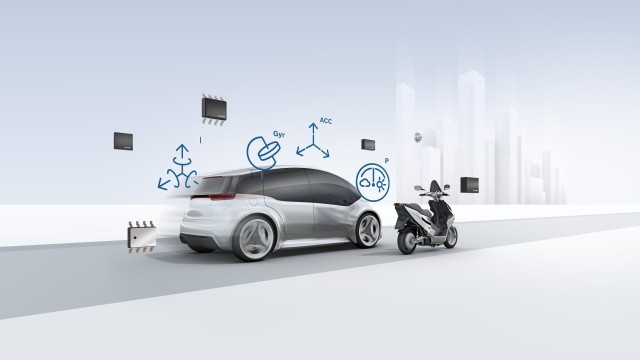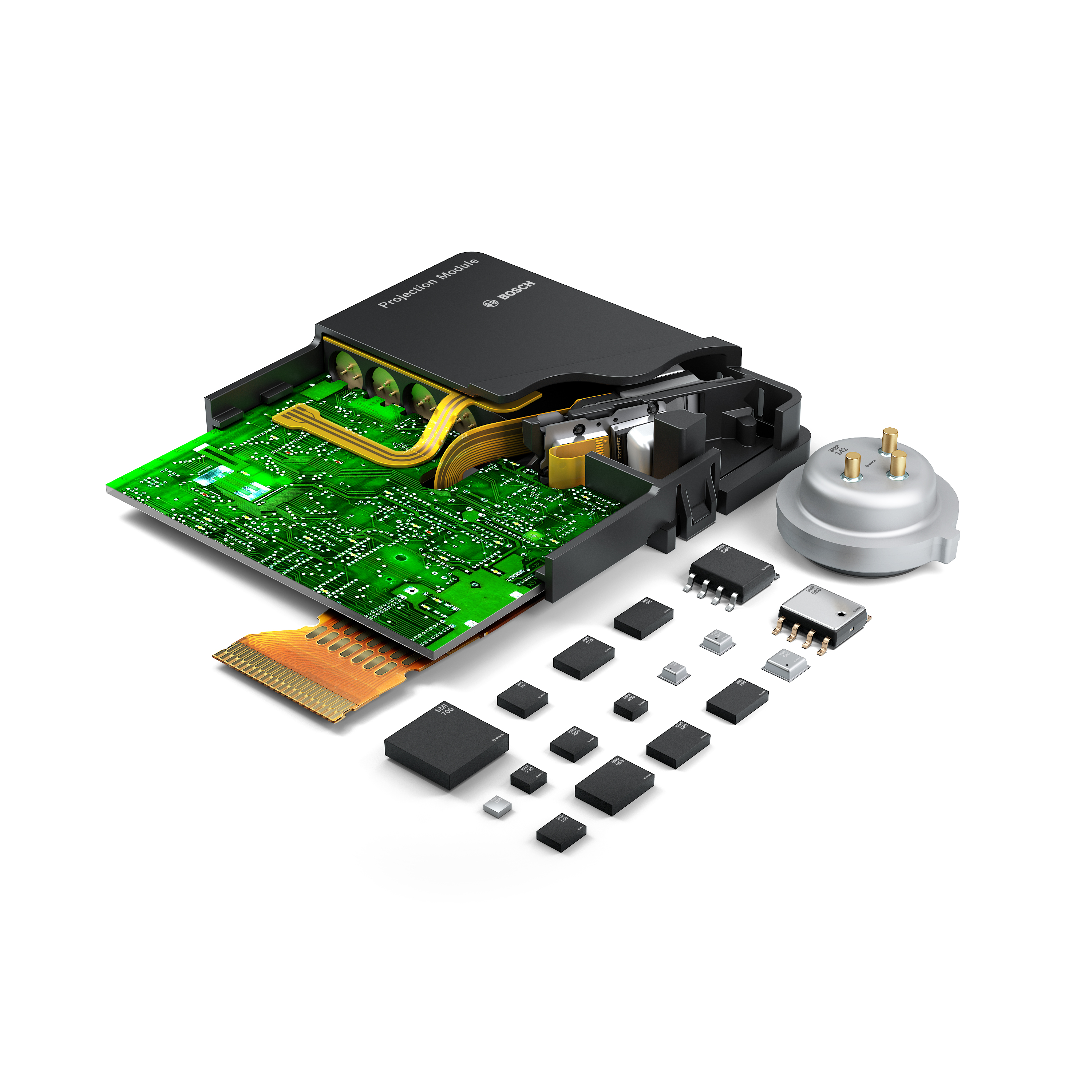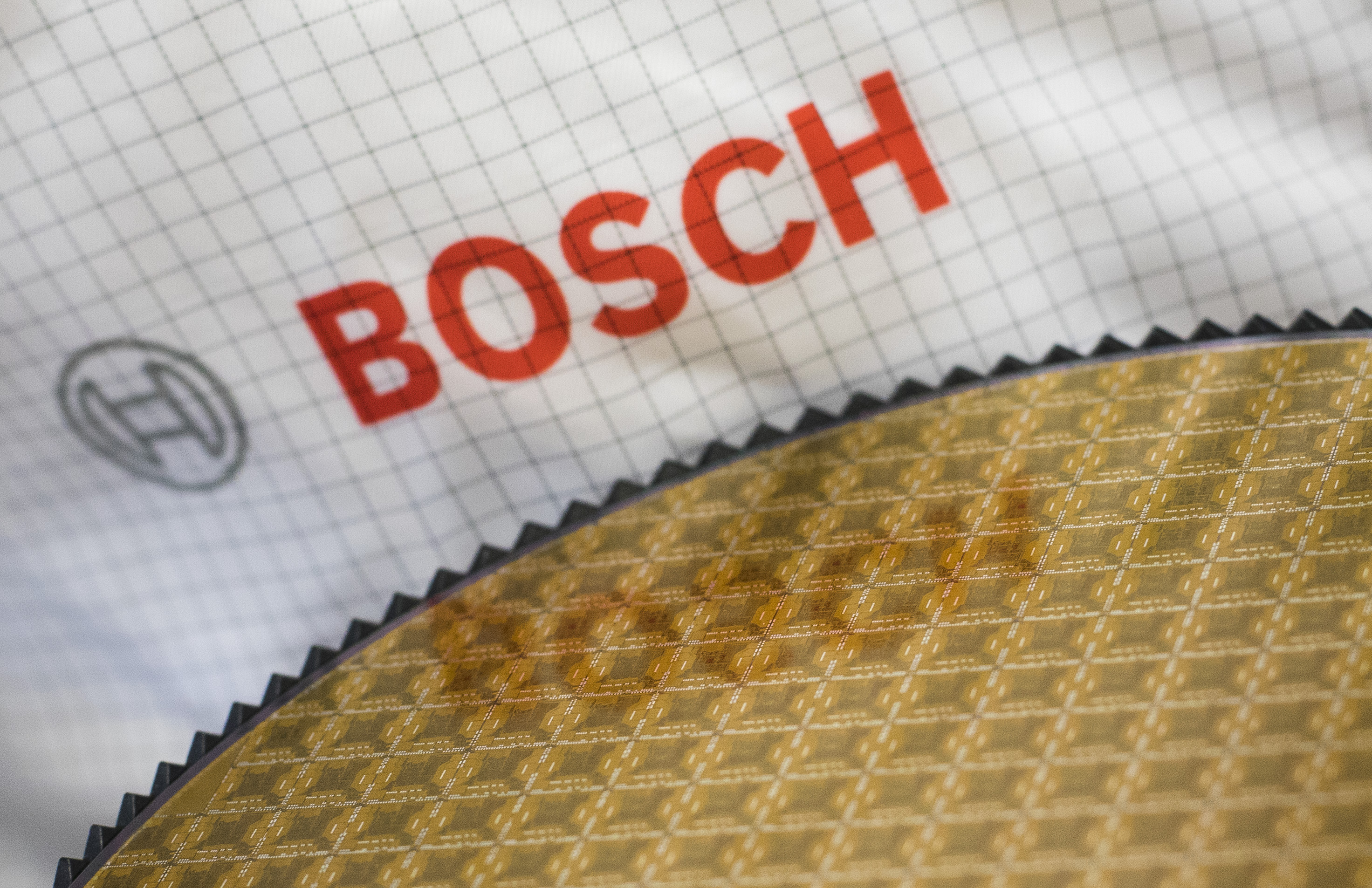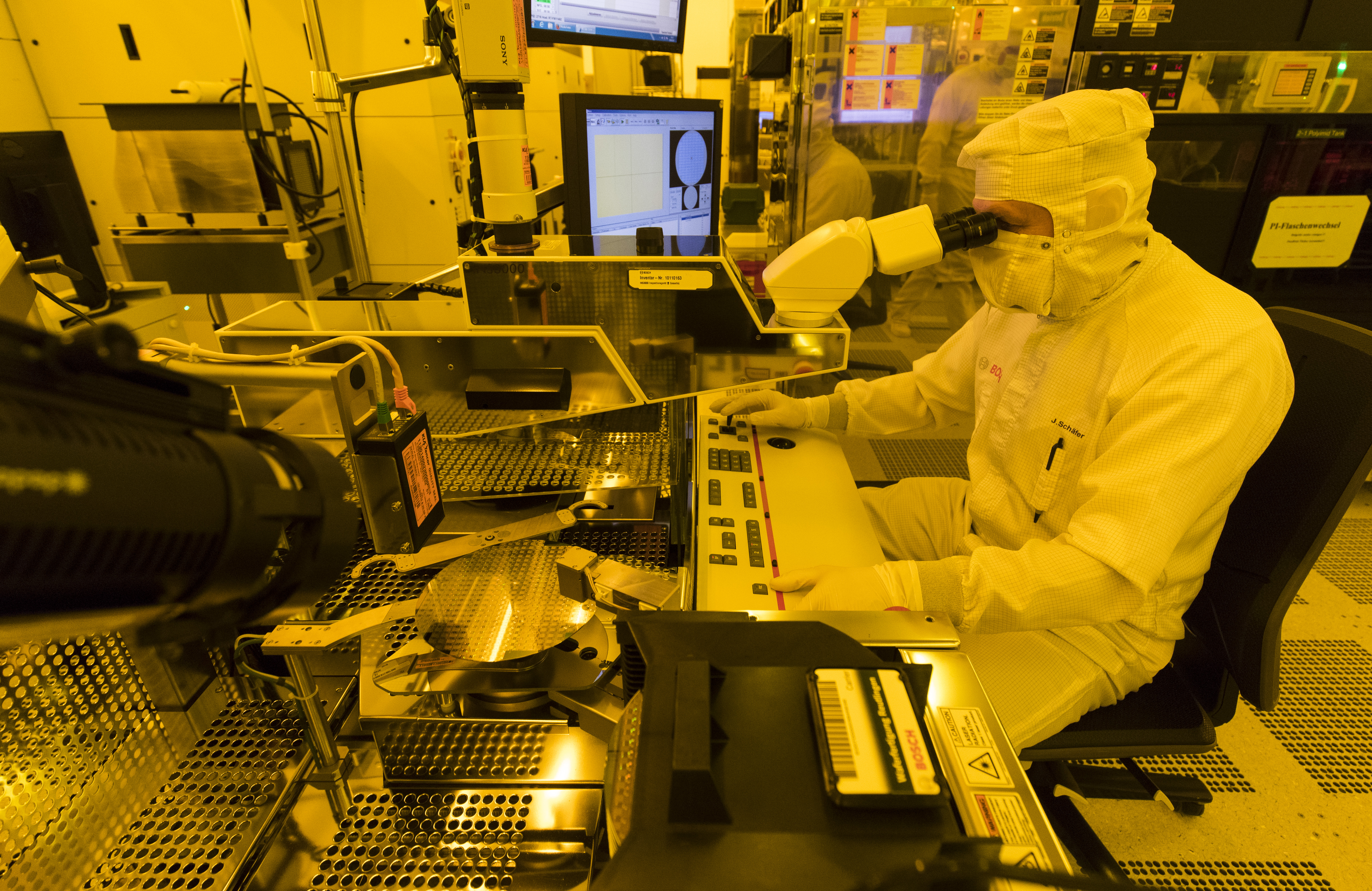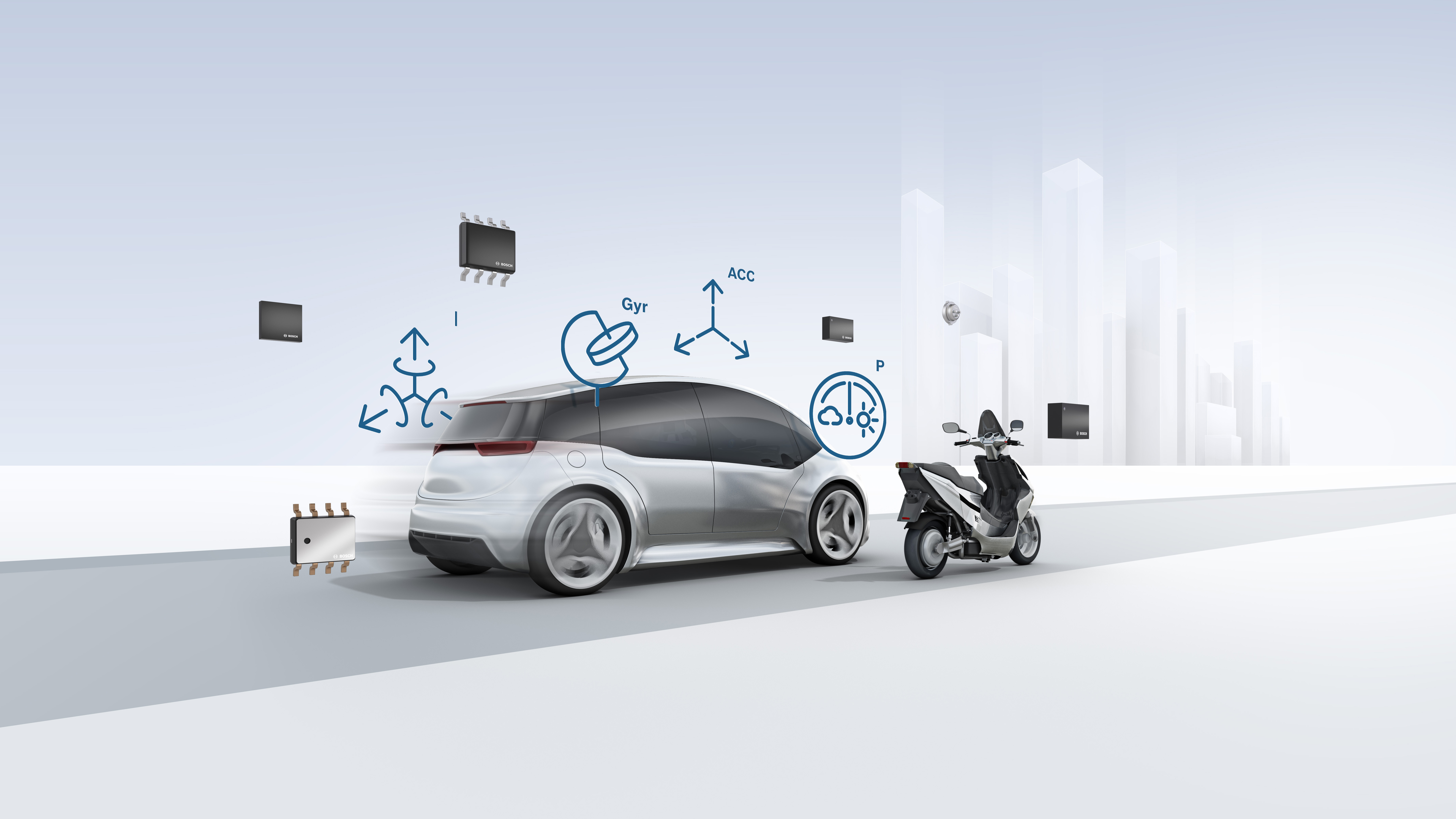Reutlingen, Germany – Every car nowadays makes use of semiconductors, and that has been true for quite a while. A key technology in today’s modern world, these chips are core components of electrical systems – including those in vehicles. They regulate the powertrain and vehicle handling, tell the navigational system which way the vehicle is going, and signal the airbag to deploy when needed. Having been making semiconductors for more than 45 years, Bosch today is one of the world’s leading manufacturers of chips for mobility applications. “Semiconductors may have been around for a long time, but we have yet to realize their full potential. These components are key to modern-day mobility, and it is impossible to imagine cars today without them,” says Jens Fabrowsky, member of the executive management of Bosch’s Automotive Electronics division. In 2016, every vehicle newly registered worldwide had an average of more than nine Bosch chips on board. “When it comes to semiconductors for cars, we have a singular advantage: Bosch is the only company equally at home in both the automotive and semiconductor industries,” Fabrowsky says. In 2018, every new vehicle featured semiconductors worth 370 dollars (source: ZVEI), and thanks to increasing electrification and automation, demand for chips in vehicles is expected to rise further over the next few years.
Additional information:
www.bosch-semiconductors.com
Contact person for press inquiries:
Annett Fischer
Phone: +49 711 811-6286
Twitter: @Annett__Fischer
BOSCH AT ELECTRONICA 2018 IN MUNICH
- BOOTH: Tuesday through Friday, November 13-16, 2018 Booth 522 in hall C3
- FOLLOW the Bosch electronica 2018 highlights on Twitter: #BoschMEMS
- PANELS WITH BOSCH EXPERTS:
- Monday, November 12, 2018, 12:30 p.m.: Presentation: “Sensors enabling future mobility solutions” with Dr. Markus Sonnemann, Vice President of Advance Engineering MEMS Sensors at Robert Bosch GmbH; electronica Automotive Conference of Messe München
- Tuesday, November 13, 2018, 11:30 a.m.: Presentation: “MEMS – One product one process?” with Dr. Udo-Martin Gómez, Senior Vice President of Engineering MEMS Sensors at Robert Bosch GmbH; SEMICON Europa; Fab Management Forum; ICM München; room 14c
- Tuesday, November 13, 2018, 3:00 p.m.: Automobilwoche’s electronica Talk from the Top with Jens Fabrowsky, executive management member of the Automotive Electronics division at Robert Bosch GmbH; Discovery Stage in hall C6
- Tuesday, November 13, 2018, 3:30 p.m.: Presentation: “MEMS mobility sensors for motion detection” with Michael Rupp, Senior Expert for Product Management Sensors at Robert Bosch GmbH; electronica Automotive Forum in hall B4
- Wednesday, November 14, 2018, 3:10 p.m.: Presentation: “The future of MEMS-based smart sensor nodes in the context of highly functional and ultra-low power IoT applications” by Dr. Ralf Schellin, Head of the MEMS business unit at Bosch Sensortec GmbH; International Congress Center (ICC)
Mobility is the largest Bosch Group business sector. It generated sales of 55.8 billion euros in 2024, and thus contributed around 62 percent of total sales. This makes the Bosch Group one of the leading mobility suppliers. Bosch Mobility pursues a vision of mobility that is safe, sustainable, and exciting. For its customers, the outcome is integrated mobility solutions. The business sector’s main areas of activity are electrification, software and services, semiconductors and sensors, vehicle computers, advanced driver assistance systems, systems for vehicle dynamics control, repair-shop concepts, as well as technology and services for the automotive aftermarket and fleets. Bosch is synonymous with important automotive innovations, such as electronic engine management, the ESP anti-skid system, and common-rail diesel technology.
The Bosch Group is a leading global supplier of technology and services. It employs roughly 412,000 associates worldwide (as of December 31, 2025). According to preliminary figures, the company generated sales of 91 billion euros in 2025. Its operations are divided into four business sectors: Mobility, Industrial Technology, Consumer Goods, and Energy and Building Technology. With its business activities, the company aims to use technology to help shape universal trends such as automation, electrification, digitalization, connectivity, and an orientation to sustainability. In this context, Bosch’s broad diversification across regions and industries strengthens its innovativeness and robustness. Bosch uses its proven expertise in sensor technology, software, and services to offer customers cross-domain solutions from a single source. It also applies its expertise in connectivity and artificial intelligence in order to develop and manufacture user-friendly, sustainable products. With technology that is “Invented for life,” Bosch wants to help improve quality of life and conserve natural resources. The Bosch Group comprises Robert Bosch GmbH and its roughly 490 subsidiary and regional companies in over 60 countries. Including sales and service partners, Bosch’s global manufacturing, engineering, and sales network covers nearly every country in the world. Bosch’s innovative strength is key to the company’s further development. At 136 locations across the globe, Bosch employs some 82,000 associates in research and development.
Additional information is available online at www.bosch.com, www.bosch-press.com.
